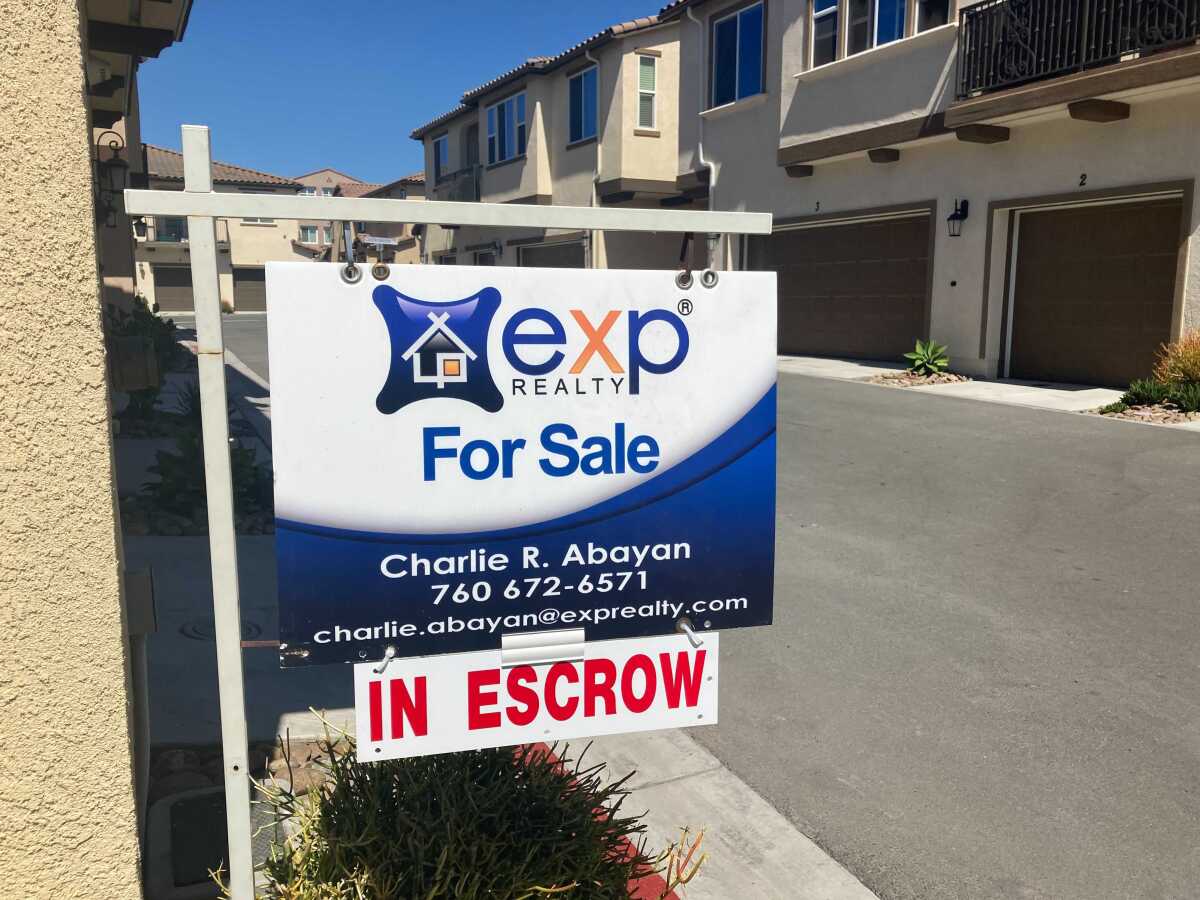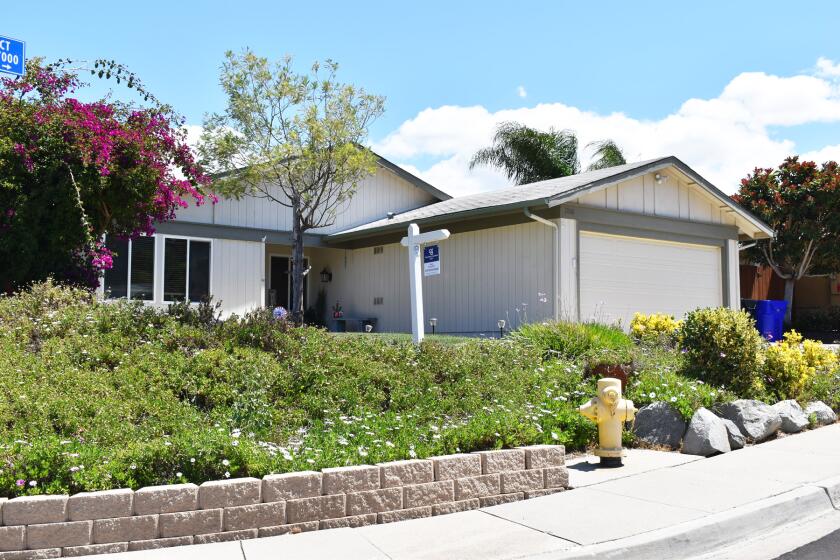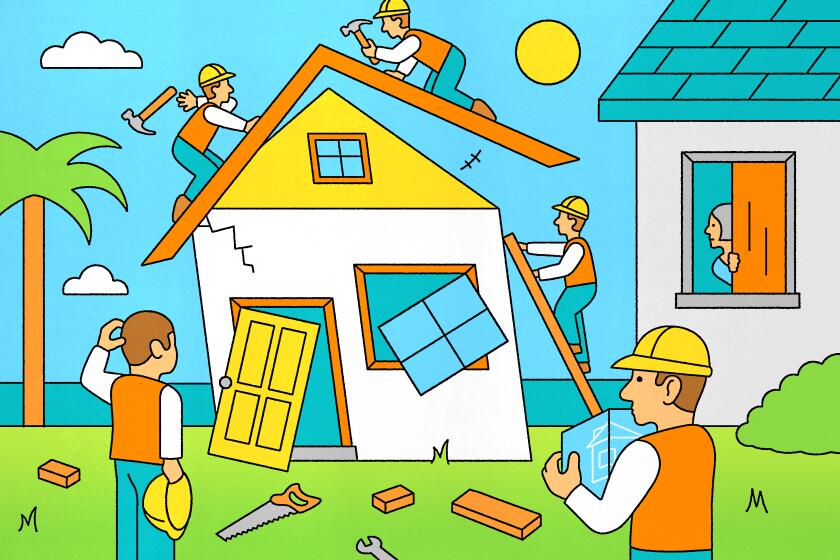California revives programs to help first-time home buyers and ADU builders. What this means

- Share via
The new California budget has some good news for house hunters and homeowners looking to expand. But when those folks will be able to capitalize on it remains a mystery.
First-time home buyers and ADU builders will have another chance to get state subsidies, thanks to an agreement by lawmakers and Gov. Gavin Newsom that restores funding for programs that were put on pause.
For the record:
12:26 p.m. Sept. 5, 2023This story incorrectly says that the $50 million restored for ADU projects would go to the ADU Grant Program. The money was for various types of ADU programs, including the grants.
The restored programs, offered by the California Housing Finance Agency, are the California Dream for All Shared Appreciation Loans and the ADU Grant Program.
The agency said it will provide an update on the Dream for All Shared Appreciation Loans program this fall that will include a timeline for applications. It’ll do so through email updates and newsletters you can sign up for.
Here’s what we know about both programs at this point.
California Dream for All Shared Appreciation Loan program
The California Dream for All Shared Appreciation Loan program launched in late March, offering qualified first-time home buyers loans worth up to 20% of the purchase price of a house or condominium. The loans were especially attractive because they carried no interest and required no monthly payments.
If it sounded too good to be true, it was — but only because the program hit its application limit (and the number of people it could help, an estimated 2,300) in only two weeks and was effectively halted.
The program shouldn’t have run out of money so quickly. State lawmakers originally set aside $500 million for the loans as part of the 2022-23 budget, but a fiscal shortfall led Newsom to propose a 40% cut, reducing the program’s allocation to $300 million.
California has put its down payment assistance program for first-time home buyers on hold, having committed all $300 million in just a few weeks. It’s not clear when new loans will be available.
As part of the budget agreement Newsom and state lawmakers struck this week, the program is set to regain $200 million in funding. But there isn’t a date for the program to resume, said Chris Saur, information officer for CalHFA.
“We are working with our partners in state government, as well as with our stakeholders, to explore ways the program guidelines and delivery system may be updated to respond to current market conditions,” Saur said. “Subject to potential guideline or system delivery updates, the program would provide a new round of loans.”
How it works
In the initial rollout, the loans were available only to households whose earnings were below CalHFA’s income limit, which is $180,000 in Los Angeles County and $235,000 in Orange County.
The loans, which can be used for down payments and closing costs, are structured as a second mortgage, which means they aren’t repaid month by month. Nor do they accrue interest the way an ordinary loan does. Instead, when the mortgage is refinanced or the house is sold again, the borrower pays back the original amount of the loan plus 20% of the increase in the home’s value.
If the home is ultimately sold for the same amount it was purchased for or less, the buyer won’t need to pay the additional 20%.
With this type of loan, the effective interest rate is equal to the average annual increase in the home’s value. That’s been about 5% in California over the long term, but the increase varies widely on a year-to-year basis, according to CalHFA.
There is a cap on the amount of the appreciation owed. No matter how much the home increases in value, the borrower will need to pay at most 2.5 times the original loan amount.
To receive a loan, borrowers must complete a home buyer education and counseling course (there are options for online and in-person classes on the CalHFA site) and a free online course specifically for shared appreciation loans.
ADU Grant Program
Why do so many projects take months longer than expected and go over budget? ADU experts say it’s often because of problems on your site that could have been averted with better preparation.
The budget agreement also restores $50 million for the California Housing Finance Agency’s ADU Grant Program, which provides up to $40,000 to help cover the planning and permitting costs involved in an accessory dwelling unit.
CalHFA stopped taking grant applications in March after Newsom sought to reclaim the funds, which were in the 2022-23 budget.
It’s not clear yet if or when the grants will resume, however.
“There is no date scheduled yet for the ADU program to re-open,” CalHFA said in a statement. “We are working with our partners in state government, as well as with our stakeholders, to explore ways the program guidelines and delivery system may be updated to respond to current market conditions.”
About The Times Utility Journalism Team
This article is from The Times’ Utility Journalism Team. Our mission is to be essential to the lives of Southern Californians by publishing information that solves problems, answers questions and helps with decision making. We serve audiences in and around Los Angeles — including current Times subscribers and diverse communities that haven’t historically had their needs met by our coverage.
How can we be useful to you and your community? Email utility (at) latimes.com or one of our journalists: Jon Healey, Ada Tseng, Jessica Roy and Karen Garcia.
More to Read
Sign up for Essential California
The most important California stories and recommendations in your inbox every morning.
You may occasionally receive promotional content from the Los Angeles Times.














